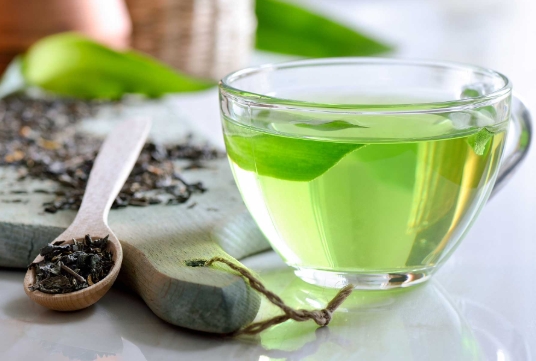Green tea has long been celebrated for its health benefits and has been consumed for centuries in various cultures around the world. Known for its mild flavor and refreshing qualities, green tea is more than just a pleasant beverage—it’s a powerhouse of antioxidants, vitamins, and minerals that can enhance your overall health. Whether you drink it for a morning boost or as an afternoon pick-me-up, here’s why you should consider making green tea a regular part of your diet.
One of the most well-known benefits of green tea is its rich antioxidant content. Green tea is packed with polyphenols, such as catechins, which have powerful antioxidant properties. These antioxidants help neutralize harmful free radicals in the body, protecting cells from damage and reducing the risk of chronic diseases. Among the catechins found in green tea, epigallocatechin gallate (EGCG) is particularly notable for its potential to fight inflammation and prevent oxidative stress, which has been linked to conditions like heart disease and cancer.
In addition to its antioxidant properties, green tea has been shown to boost metabolism and assist in weight management. Studies suggest that the catechins in green tea can increase fat oxidation, especially during exercise. Drinking green tea may help you burn more calories and fat, making it an excellent addition to any weight loss or fitness routine. While green tea alone isn’t a miracle solution for weight loss, it can support your efforts when combined with a healthy diet and regular exercise.
Green tea also has a positive effect on heart health. The antioxidants in green tea help improve blood vessel function, lower LDL cholesterol (often referred to as “bad” cholesterol), and reduce triglyceride levels. These effects work together to decrease the risk of heart disease and stroke. Several studies have shown that individuals who regularly consume green tea have a lower risk of developing cardiovascular problems. Additionally, the anti-inflammatory properties of green tea can help protect the arteries from damage and improve overall heart health.
For those looking to improve brain function and mental clarity, green tea is an excellent choice. Green tea contains caffeine, which provides a gentle energy boost without the jitteriness or crash often associated with coffee. In addition to caffeine, green tea also contains an amino acid called L-theanine, which promotes relaxation and enhances cognitive function. The combination of caffeine and L-theanine can improve attention, focus, and memory, making green tea a great beverage for studying, working, or any task requiring mental concentration.
Green tea’s ability to improve skin health is another compelling reason to add it to your daily routine. The antioxidants in green tea help fight the signs of aging by reducing wrinkles, fine lines, and sun damage. Some studies have even suggested that green tea may protect against skin cancer by inhibiting the growth of skin cells damaged by ultraviolet (UV) radiation. Additionally, green tea’s anti-inflammatory properties can help calm irritated skin and reduce redness or puffiness, making it a great choice for those with sensitive skin.
Another potential benefit of green tea is its ability to support healthy blood sugar levels. Some studies suggest that drinking green tea regularly may help improve insulin sensitivity and regulate blood sugar. This could be particularly beneficial for individuals with type 2 diabetes or those at risk of developing the condition. The polyphenols in green tea may help lower blood sugar spikes after meals and reduce the risk of insulin resistance, a key factor in diabetes development.
Green tea also offers benefits for digestion. It has been traditionally used in many cultures to soothe the digestive system, relieve bloating, and promote healthy gut function. The catechins in green tea can help regulate gut bacteria, which plays a crucial role in digestion and immune function. Green tea may also help prevent or alleviate constipation by promoting regular bowel movements.
Incorporating green tea into your daily routine is simple and enjoyable. You can brew a cup of fresh green tea in the morning, as a mid-day break, or in the evening to relax. If you find the taste too mild, consider adding a slice of lemon or a spoonful of honey for extra flavor. For those who prefer a cold beverage, iced green tea is a refreshing option, especially during warm weather.
While green tea offers a wide range of health benefits, it’s important to consume it in moderation. Drinking excessive amounts of green tea can lead to potential side effects, such as digestive discomfort or increased caffeine sensitivity. A cup or two a day is typically enough to enjoy the health benefits without overdoing it.
Green tea is a simple yet effective way to enhance your health. From its powerful antioxidants and heart health benefits to its potential role in weight management, brain function, and skin care, green tea is truly a beverage worth incorporating into your daily life. So, the next time you’re looking for a healthy, refreshing drink, reach for a cup of green tea and experience the many benefits it has to offer.





